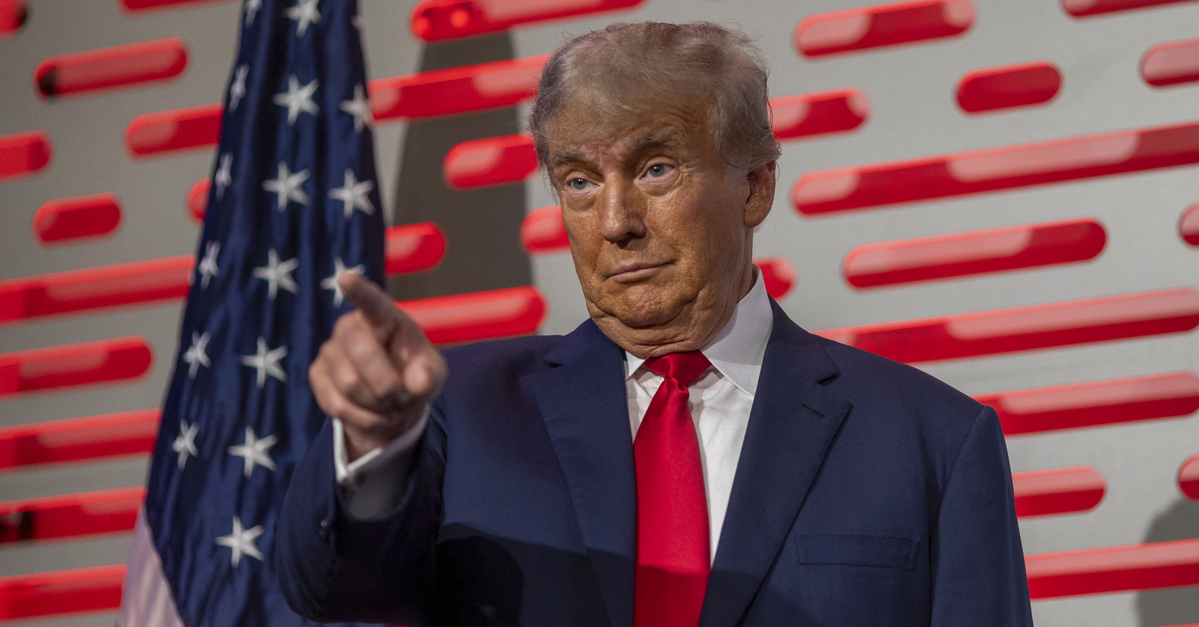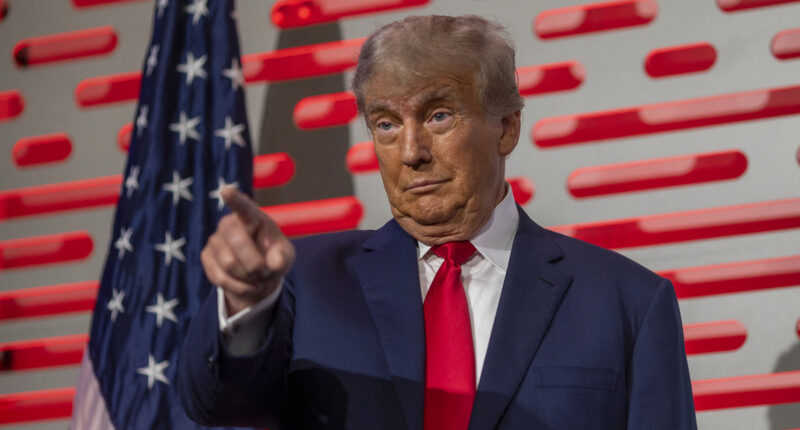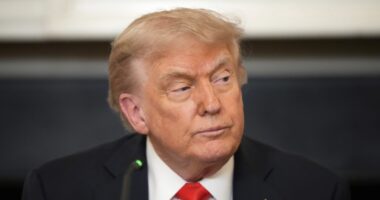
Former U.S. President Donald Trump has a high percentage of popular support to win elections in the Republican Party (GDA via AP Images).
The Trump administration is asking a federal court to keep intact the president’s executive order that would put an end to birthright citizenship for babies born in the U.S. to parents who are not permanent residents.
The executive order, named “Protecting the Meaning and Value of American Citizenship,” instructs key government officials to stop granting citizenship to children of parents who are in the U.S. unlawfully or on a temporary legal basis.
Introduced shortly after Trump’s re-inauguration last week, the order triggered numerous legal challenges across the country. Critics argue that the administration is trying to overturn over 150 years of established legal precedent on its own.
Among those challenging the administration, five pregnant women and two immigrant advocacy groups filed a suit in Maryland federal court, condemning the order as a “flagrant violation” of the Fourteenth Amendment and Citizenship Clause, “which guarantee the fundamental right to citizenship for all children born in the United States.”
“The President has no unilateral authority to override rights recognized in the Constitution or in federal statutes,” the complaint states. “The principle of birthright citizenship is a foundation of our national democracy, is woven throughout the laws of our nation, and has shaped a shared sense of national belonging for generation after generation of citizens.”
The suit sought a restraining order blocking the policy from going into effect.
In a 34-page filing opposing the lawsuit, the DOJ reiterated its position that the administration’s newly introduced definition of citizenship is the only proper interpretation of the Citizenship Clause of the 14th Amendment, as supported by its wording, past legal precedent, and simple “common sense.”
“That Executive Order recognizes that the Constitution does not grant birthright citizenship to the children of aliens who are unlawfully present in the United States as well as children of aliens whose presence is lawful but temporary,” Acting Assistant Attorney General Brett Shumate wrote. “Text, history, and precedent support what common sense compels: the Constitution does not harbor a windfall clause granting American citizenship to, inter alia (‘among other things’): the children of those who have circumvented (or outright defied) federal immigration laws.”
The filing goes on to state that despite the plaintiffs’ “dramatic assertions about the supposed illegality of the [executive order],” they are not entitled to the “extraordinary emergency relief” they seek because their claims fail on the merits due to their misreading of the Constitution.
Specifically, the Justice Department argued that the Citizenship Clause’s use of the phrase “subject to the jurisdiction” of the U.S. conveys that that person must have a “direct and immediate allegiance” to the country that is “unqualified by an allegiance to any other foreign power.” Just as such phrasing has been interpreted to exclude foreign diplomats and occupying enemies, it similarly excludes “foreigners admitted temporarily or individuals here illegally,” according to the DOJ.
“Although Plaintiffs contend that the Citizenship [executive order] upends well-settled law, it is their maximalist reading which runs headlong into existing law,” the filing states. “Not only is it inconsistent with the Supreme Court’s holding in Elk v. Wilkins that the children of Tribal Indians did not fall within the Clause, even though they were subject to the regulatory power of the United States, but it would render the Civil Rights Act of 1866 (which defined citizenship to cover those born in the United States, not ‘subject to any foreign power’) unconstitutional just two years after it was passed. But the Citizenship Clause was an effort to constitutionalize the Civil Rights Act.”
The DOJ appears to have an uphill battle with its effort to jettison birthright citizenship. A federal judge in Washington state last week temporarily blocked the measure, referring to it as “blatantly unconstitutional.”
“I have difficulty understanding how a member of the bar could state unequivocally that is a constitutional order,” U.S. District Judge John Coughenour, an appointee of President Ronald Reagan, said during a hearing. “It boggles my mind.”








